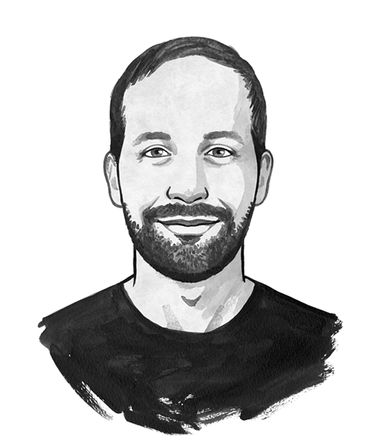In an earlier piece, I argued that the climate emergency is part of a greater ongoing struggle for human rights. That’s why I’m now organising an online panel to discuss how to change the way we talk about it.
The premise of our conversation is: climate action can’t just be aimed at reducing emissions. It must focus on reorganising society to bring about a world that’s grounded in justice and equity. If that happens, the climate emergency will be well on its way to ending.
A key part of reimagining the climate narrative will be active anti-racism: making the choice to listen to voices which are different from those who have dominated decision-making for the past 500 years.
Indigenous people have been on the frontline of the climate crisis since its beginning. In the 21st century, there’s been a surge in violence explicitly towards Indigenous environmental activists, from Australia to the Congo, and from the Amazon Basin to Standing Rock in North America.
The rest of the world has a lot to learn from Indigenous people.
They comprise 5% of the world’s population, yet protect 80% of its biodiversity. Indigenous models of land stewardship, representative democracy and interpersonal relationships could revolutionise how human society is organised – to enable change on the scale demanded by the findings of the Intergovernmental Panel on Climate Change.
Telling better stories
we’ll host a transnational dialogue to explore the escalating interconnected emergencies of colonialism, extractive capitalism, and climate breakdown. Our conversation will focus on how to tell better stories about the root of these problems. And how those truths can lead to better solutions.
Please take a second to save the date and register to this free event. We’re so excited for you to join in the conversation. We’ll send you joining details closer to time.
We’d love to invite our readers to be a part of this unique discussion by thinking and responding to any of the following questions:
How do you imagine transformational change happening in your own life, your own family, your own neighbourhood, your own country? What is the systemic change you are most excited about working towards? What kind of stories do you want to tell?
Speakers
- Marama Mere-Ana Davidson is a representative of the Green Party of Aotearoa New Zealand and is also co-leader of the Green Party. The daughter of urban Māori activists, Davidson actively advocated for climate and social justice during her 10-year career at the Human Rights Commission.
- Licypriya Kangujam is an 8-year-old Indian Climate Activist and founder of The Child Movement. She was a student of KIIT International School, Bhubaneswar but she dropped out of school in February 2019 to protest every week in front of the Parliament House of India to pass a Climate Law in the parliament by addressing the prime minister Narendra Modi and the MPs.
- Kyle Powys Whyte is Professor and Timnick Chair at the Department of Philosophy and the Department of Community Sustainability at Michigan State University. Kyle’s research addresses moral and political issues concerning climate policy and Indigenous peoples, the ethics of cooperative relationships between Indigenous peoples and science organisations, and problems of Indigenous justice in public and academic discussions of food sovereignty, environmental justice, and the anthropocene. He is an enrolled member of the Citizen Potawatomi Nation.
- Kelsey Leonard is a water scholar, activist and international speaker advocating for Indigenous water rights. She currently represents the Shinnecock Indian Nation Mid-Atlantic Committee on the Ocean and serves as a member of the Great Lakes Water Quality Board of the International Joint Commission. As a Shinnecock citizen and environmental leader, Dr. Leonard strives to be a strong advocate for the protection of Indigenous waters through enhanced interjurisdictional coordination and meaningful co-governance.
- Felipe Viveros is an action researcher, strategist and consultant specialising in campaigning, program design and fundraising. He has worked with governments and organisations globally and is currently the Chair of The Rules, a global network of activists, coders, researchers and artists addressing the root causes of poverty, inequality and climate change. Throughout his career, Felipe has championed environmental campaigning and Indigenous peoples rights and founded the Black Line Initiative, a groundbreaking environmental Indigenous consultancy with the Kogi people of Colombia.
- Andrea Ixchíu is a Maya K’iche journalist and activist, who starred in the documentary 500 Years. She grew up in a family of human rights defenders in rural Guatemala and, since childhood, has devoted her life to defending gender and Indigenous rights. In 2012, Andrea became the first young woman to be elected president of the Board of Natural Resources for the 48 Cantones, the local Indigenous authorities in her hometown of Totonicapán. Andrea’s writing can be found in el Periódico, Prensa OPAL Chile and Midia Ninja. Her work earned her a place at the Nobel Women Initiative, where she was nominated by the Myrna Mack Foundation to participate in the Sister-to-Sister Mentorship Program.

Join my online panel on Thursday 9 July! Together, let's imagine better ways to talk about the climate emergency.